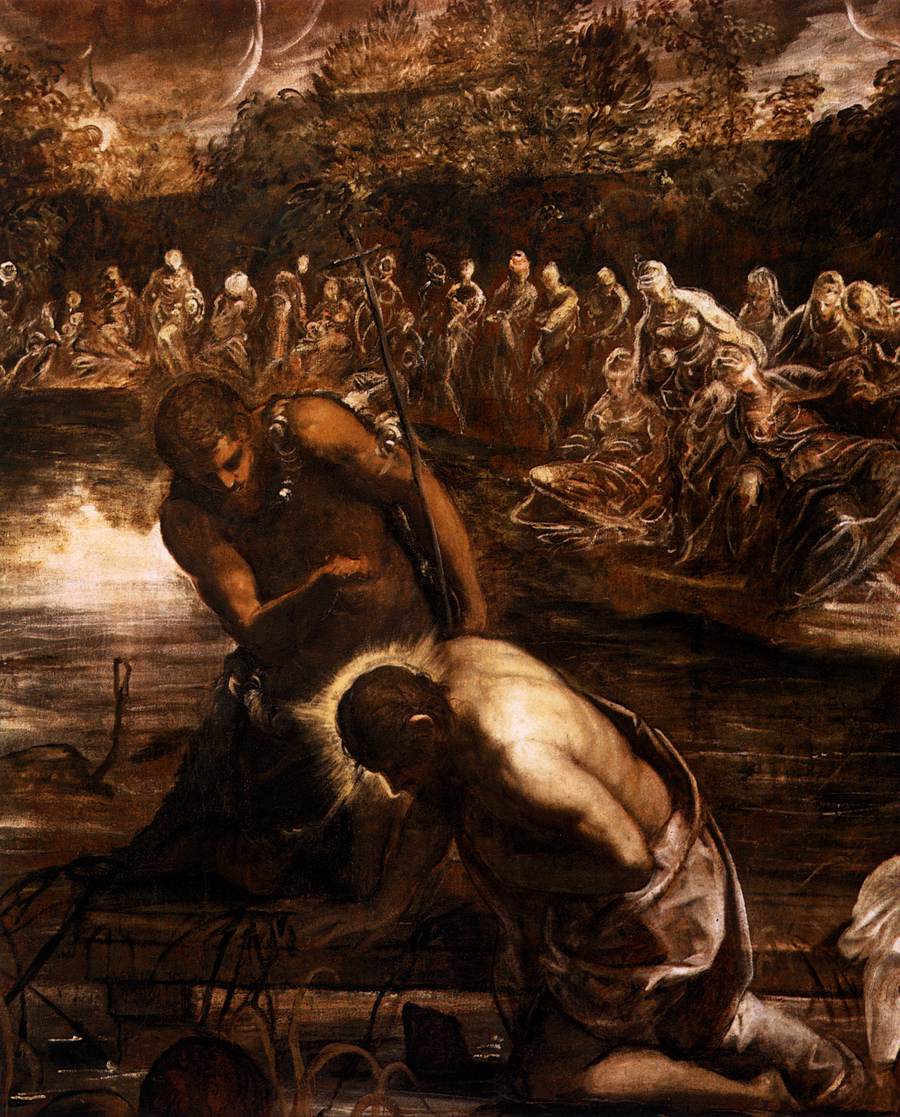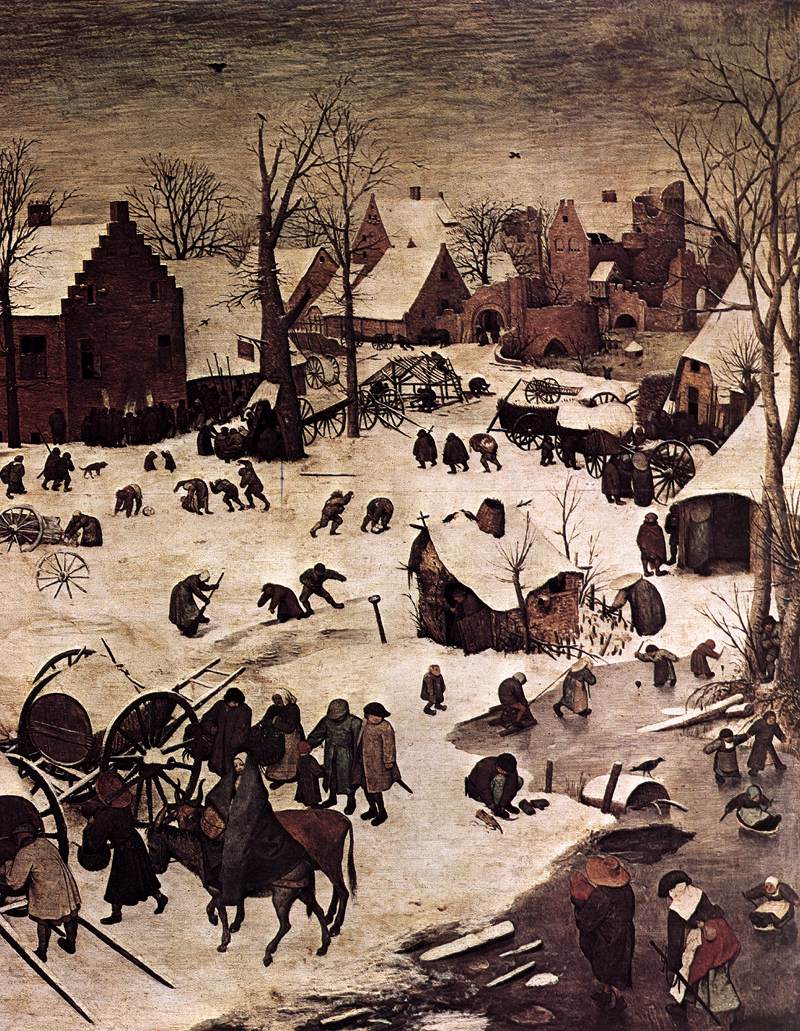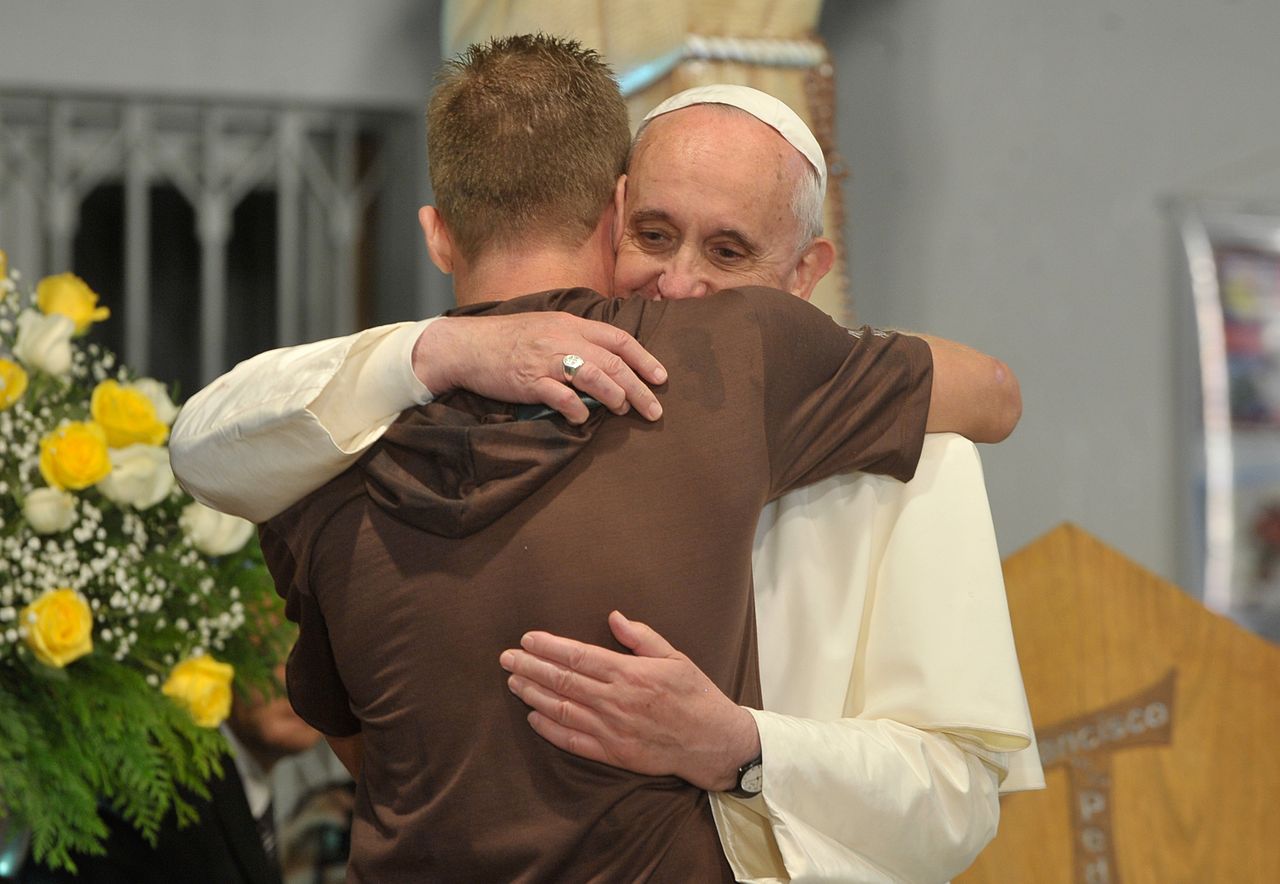The Baptism of Christ (detail), Tintoretto, 1579-81
Scuola Grande di San Rocco, Venice [Web Gallery of Art]
Readings (New American Bible: Philippines, USA)
Readings (Jerusalem Bible: Australia, England & Wales, India [optional],
Ireland, New Zealand, Pakistan, Scotland, South Africa)
Gospel Mark 1:7-11 (New
Revised Standard Version, Catholic Edition, Canada)
John the Baptist
proclaimed, “The one who is more powerful than I is coming after me; I am not
worthy to stoop down and untie the thong of his sandals. I have baptized you with water;
but he will baptize you with the
Holy Spirit.”
In those days Jesus
came from Nazareth of Galilee and was baptized by John in the Jordan. And just as he was coming up out of the water, he saw the
heavens torn apart and the Spirit descending like a dove on him. And a voice came from heaven, “You are my Son, the Beloved;
with
you I am well pleased.”
The Census at Bethlehem, Pieter Bruegel the Elder, 1566
Musées Royaux des Beaux-Arts, Brussels [Web Gallery of Art]
Two weeks ago, on the Feast of the Holy Family, I celebrated Mass in Holy Family Home for Girls here in Bacolod City. At the beginning of my homily I asked a number of the girls to look at a copy of the painting by Pieter Bruegel the Elder above and to point out the Holy Family in it. None of them could find Mary and Joseph, just as none of the figures in the painting notices the young woman on the donkey and the man leading it.
Detail of Bruegel's painting [Wikipedia]
In Tintoretto's painting of the Baptism of Jesus it is clear who the two figures in the foreground are. But there are many people in the background. When Jesus asked John to baptize him the others in the line would not have known who he was. They would have presumed that, like themselves, he was a sinner instead of the Word who became flesh and lived among us (John 1:14).
In his birth and at the beginning of his public life Jesus is almost anonymous, a 'nobody'. St Theodotus of Ancyra reflects on this:
The Lord of all comes as a slave amidst poverty. The
huntsman has no wish to startle his prey. Choosing for birthplace an unknown
village in a remote province, he is born of a poor maiden and accepts all that
poverty implies, for he hopes by stealth to ensnare and save us.
If he had been born to high rank and amidst luxury, unbelievers would have said the world had been transformed by wealth. If he had chosen as his birthplace the great city of Rome, they would have thought the transformation had been brought about by civil power.
Suppose he had been the son of an emperor. They would have said: 'How useful it is to be powerful!' Imagine him the son of a senator. It would have been: 'Look what can be accomplished by legislation!'
But in fact, what did he do? He chose surroundings
that were poor and simple, so ordinary as to be almost unnoticed, so that
people would know it was the Godhead alone that had changed the world. This was
his reason for choosing his mother from among the poor of a very poor country,
and for becoming poor himself.
Pope Francis will be coming to the Philippines on 15 January. One of my priest-friends whose flight was delayed in Manila the other day for two hours - one of many delayed flights - in the context of many flights that will be cancelled on the day the Pope lands in Manila and on the day he leaves - said, only half-jokingly, He should be made wait two hours like everyone else! Bruegel's painting, The Census at Bethlehem, suggests that Mary and Joseph will have a long wait when they join the queue outside the office to the left of the picture. And maybe Jesus the adult had to wait quite a while before reaching St John the Baptist, just as in my young days I often had to wait quite a while outside the confessional in my parish church in Dublin on Saturdays because there were so many sinners there before me.
Tacloban Airport after Haiyan/Yolanda [Wikipedia]
And in today's Philippine Daily Inquirer [9 January] Archbishop John Du of Palo, the archdiocese that includes Tacloban City devastated by Supertyphoon Haiyan/Yolanda in November 2013, is reported as asking security people to 'soften' their draconian security measures during the visit of Pope Francis to Leyte. Pope Francis specifically asked to visit Tacloban City so that he could meet survivors of the typhoon. He will celebrate Mass at the airport there on 17 January. But those who wish to attend will have to be there the evening before and will not be allowed to bring tents, umbrellas or bottled water, though there will be water stations at the airport. And tonight's weather forecast says that an area of low pressure may hit where Tacloban is located around the time the Pope visits. If it does it will probably bring lots of rain.
The ordinary people of Leyte, many of them still living in makeshift houses, will be treated just as Joseph and Mary were along with the people outside the office in Bruegel's painting. And the Pope's very purpose in visiting Tacloban will be thwarted to some extent, even though tight security is sadly necessary in today's world.
But the world of first-century Bethlehem, the world of Bruegel's 16th-century Netherlands, the world of 21st-century Tacloban City is the world in which the Word became flesh and lived among us.
The Good News is that the Word who became flesh still lives among us.
This hymn by contemporary English composer John Rutter isn't linked to the Feast of the Baptism of the Lord. But it is a hymn of thanksgiving to God for all that he has given us. The greatest gift of all is our Christian faith, received at our baptism. It is that faith, for which many Filipinos have a great sense of gratitude, that Pope Francis is coming to affirm. Please pray that his visit will bear fruit and bring all of us to focus our lives on Jesus Christ so that we, like St John the Baptist, may draw others to him.


_-_WGA03381.jpg/1024px-Pieter_Bruegel_the_Elder_-_The_Census_at_Bethlehem_(detail)_-_WGA03381.jpg)
_25_drops_supplies_to_Tacloban_Air_Base%2C_Philippines%2C_in_support_of_Operation_Damayan_Nov._14%2C_2013_131114-N-BX824-004.jpg)











